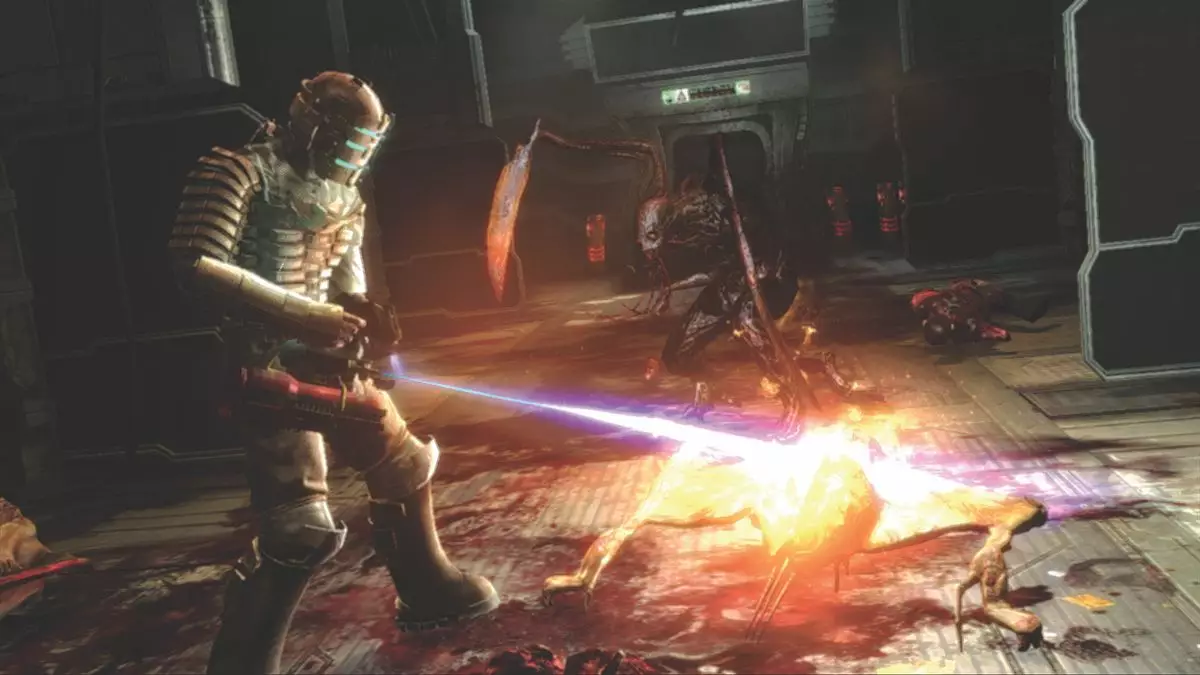The Dead Space trilogy has carved an indelible mark in the annals of horror gaming, a blend of psychological terror and visceral gameplay that has captivated players since its inception. As anticipation grows following the success of the remake, whispers of a potential Dead Space 4 have surfaced, particularly with the original creators expressing interest in continuing the saga. However, an ice-cold reception from EA has cast shadows over this possibility. The release of a new installment remains uncertain as fans cling onto the hope that the franchise can defy the odds once again.
Creators’ Aspirations and EA’s Dismissal
Recent discussions with key figures behind Dead Space, including Glen Schofield, Christopher Stone, and Bret Robbins, have revealed their renewed interest in revisiting the franchise. Speaking to Dan Allen Gaming, Schofield noted, “We tried actually, the three of us,” referring to their efforts to pitch the concept of Dead Space 4 to EA. Despite their enthusiasm and imaginative concepts, the trio was met with a blunt response: “we’re not interested right now.” This dismissal raises questions about EA’s strategy in a gaming landscape that constantly evolves.
It’s intriguing to consider how corporate decision-making impacts creative freedom. The trio’s reluctance to push further after EA’s initial rejection highlights a nuanced understanding of the industry’s climate, where publishers increasingly exhibit caution and aversion to risk. Stone’s reflection on the industry being “in a weird place” underscores a broader concern—are we missing out on innovation due to apprehension from power players in the gaming world?
The developers’ nostalgia for the franchise is palpable; their desire to contribute further to a world they’ve shaped speaks volumes about the attachment creators often have to their work. Schofield’s statement that “Bret might have trouble right now, Bret’s got a good gig going” adds layers to their discussion, revealing the diverse paths the original team members have taken. While Robbins is currently engaged in a new audio venture with industry heavyweight Dan Houser, Schofield and Stone find themselves reminiscing about their glory days within the Dead Space universe.
This group’s collective desire to create is indeed powerful. They’ve hinted at numerous ideas for a sequel, igniting curiosity about where the narrative could lead next. Revisiting a celebrated IP can sometimes rekindle both creative juice and player interest—not just for nostalgia’s sake, but also to prove that the original brilliance can transcend generations and technology.
Shifting Landscapes: From Dead Space to The Callisto Protocol
The transition from Dead Space to Schofield’s The Callisto Protocol, while promising on paper, illustrates the uphill battle of crafting new IPs against the backdrop of established franchises. Despite the fresh innovative take within the horror genre, The Callisto Protocol struggled to capture the essence that made Dead Space an icon, as noted in reviews praising its visuals yet criticizing its combat design. This paints a stark warning for original creators who shift gears to explore new narratives: success is never guaranteed.
For many gamers, the moment of discovery often comes too late; reflecting on personal experiences reveals the emotional and societal barriers that can keep us from experiencing remarkable narratives. The original Dead Space, with its gripping atmosphere and story, was overlooked by many—myself included—due to misconceptions about its cover art. Such misjudgments can lead to tragic losses in engagement with fantastic storytelling.
As fans continue to spotlight the franchise, the call for Dead Space 4 remains loud and clear. While the landscape of gaming evolves, it’s crucial for publishers to remain receptive to creative pitches by original teams, especially when these creators are passionate and eager to reconnect with their roots. The recent successes of remakes have signified a willingness within the community to revisit past glories.
While the response from EA lays the groundwork for uncertainty around Dead Space 4, the spirit of creativity persists within its original developers. Their shared eagerness is a beacon of hope for fans who believe that the franchise still has plenty of life left to explore. As we wait for a potential revival, let us remember the significance of innovation birthed from nostalgia—not simply as a way to relive the past, but to forge new paths into the unknown.


Leave a Reply